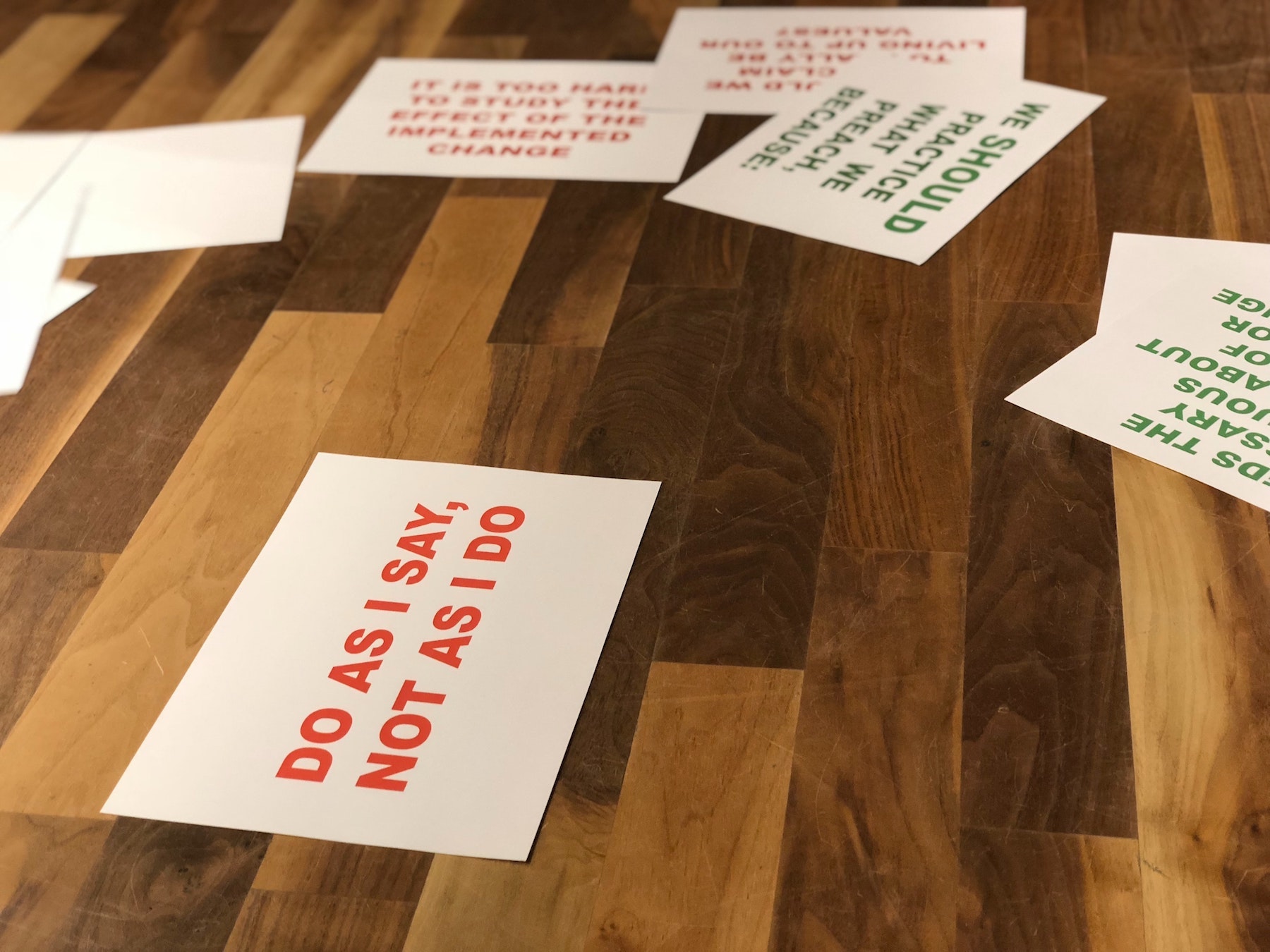I clearly remember a day when I was at a conference we had organised for our amazing team of coaches. We were working on an fabulous project for Ford Motor Company and this was one of the opportunities we had in the year to all meet up, work together, learn together and have some fun. One of the newer coaches to the team came up to me to introduce herself and began thanking me for everything we were doing, and I could tell by the way she was speaking to me that this was a big thing for her to come to speak with me…. Me??? Why??? Who was I????
She was asking me questions and hanging on my every word. What?? And then, when I told her that I needed to go to sort some things out, there was this sense of “oh gosh! I’m keeping you from something much more important!”
NOOOO!
When I reflected on the exchange (and went to speak to one of the coaches who had been working with me for a while!) I had to come to terms with the fact, that in her eyes I was the leader of this team and that this meant something to her. That in some way, I was looked up to – if I did things right. And that everything I said and did had an impact.
Eek!
Now there’s a fine line here between ego and modesty. My whole being was screaming out
but I’m a coach just like you! In fact, you’re doing more coaching than I am right now!
And I had to also understand that I was leading this team of coaches and that my responsibility was ‘other’ than theirs and that my experience in leading them and starting the project was valuable.
Since then, I’ve reflected more on what was it that I did that made me a successful leader of this team. I role modelled behaviours and values that I felt were important and that I wanted others to adopt. So, trust is a huge value for me and I made it very clear that they had my complete trust when it came to doing the work and putting their client’s interests first and that I expected them to trust me to put them and their clients first too. This came with some demands on my part in terms of what information they shared with me, how and when. And although very few of them lost that trust, it was obvious when they had and that they could no longer work in the team.
I could list quite a few things that I did, behaviours that I role modelled but in essence it came down to one thing really – it came down to who I was. I was successful because I was me – I understood my values and could express them, I didn’t feel the need to hide behind a persona or an image of what a leader of this team should be like. I revelled in being me and expressing myself honestly with the team, whilst at the same time having their best interests and the interests of the client at heart.
Were there ‘leadership behaviours I role modelled? Yes:
- Trust
- Collaboration
- Compassion
- Resourcefulness
- Communication
- Curiosity
- Vision
- Tenacity
These are some of the words used by those in the team.
And they also saw me
- Fail
- Get tired
- Get upset
- Get angry
And get back up again, and apologise, …
In short, they experienced a human being learning and exploring and doing their best at the time in an inclusive way.
So, when you’re thinking “who am I as a leader?”, I’d say ask yourself “who am I as a human being?” and then simply be more you.
